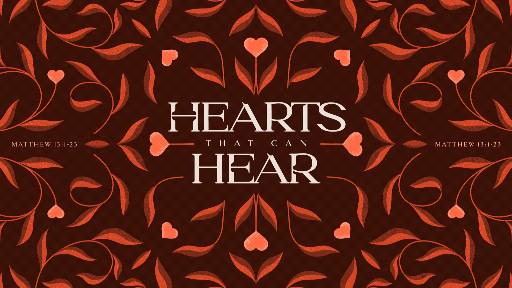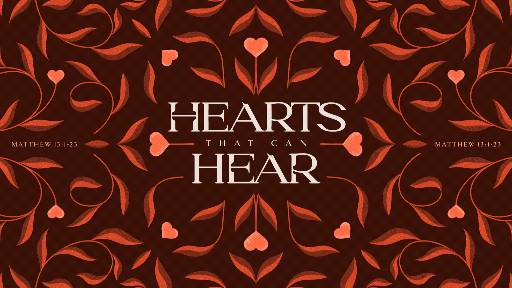-
The Eye Series
Contributed by John Lowe on Aug 30, 2022 (message contributor)
Summary: Jesus has just noted that the eye is the body's lamp. A healthy eye perceives light and transmits that information to the body. In a poetic sense, a functioning eye floods the body with light. Light allows a person to see and operate in the world according to what is true.
The Eye
(22) "The eye is the lamp of the body. If your eyes are healthy,
(23) But if your eyes are unhealthy, your whole body will be full of darkness. If then the light within you is darkness, how great is that darkness!
Jesus has just commanded His listeners to stop stockpiling treasure on earth. Instead, they should invest in building treasure in heaven. This is done by making the right choices out of sincere devotion to God. He said that human hearts are found wherever a person's true treasure is (Matthew 6:19–21). His point is not that money is evil or that Christians are obligated to poverty. Instead, it means that the priority of a believer's life ought to be honoring God and serving Him rather than accumulating temporary wealth (Matthew 6:24).
This and Matthew 6:23 will illustrate this point. Jesus calls the eye the lamp of the body. This is true physically; all the light by which we see the world is perceived by using our eyes. Healthy eyes capture all the available light, giving that person a clear understanding of the world around them. Symbolically, functioning eyes allow the mind and body to be "full of light."
The mind and thoughts—our awareness of the outside world—are contingent upon the light being perceived by the eyes. In the following verse, Jesus notes that the reverse is also true. Faulty eyes do not perceive and transmit light, effectively cloaking that person's inner and outer world in darkness.
Scripture often uses light as a metaphor for truth, goodness, and understanding (Proverbs 4:18–19; Matthew 4:16; 5:13; John 8:12; 2 Corinthians 4:6). Jesus' point here is about perception. Focusing hope and aspirations on temporary, earthly treasure indicate greed or lack of faith in God to provide. This spiritual flaw is to the heart what a cataract or injury is to the eye. It effectively creates darkness, on the inside, by failing to perceive and transmit "light." Blocking the light of spiritual truth leads to inner darkness filled with moral corruption. It is like being blind.
On the contrary, focusing on sincere devotion to God and right living is like having clear, healthy eyes: it allows the light of God's righteousness into a person's heart. In this part of the Sermon on the Mount (Matthew 5:1–2), Jesus uses sight and blindness—light and darkness—as a metaphor to illustrate his teaching on stockpiling treasure in heaven. Keeping with the theme of chapter 5 involves making the right choices instead of storing up treasure on earth rather than treasure in heaven. Unhealthy reliance on worldly wealth reflects greed; God, not the world, ultimately provides what we need (Matthew 6:19–21).
Jesus has just noted that the eye is the body's lamp (Matthew 6:22). A healthy eye perceives light and transmits that information to the body. In a poetic sense, a functioning eye floods the body with light. Light allows a person to see and operate in the world according to what is true (Proverbs 4:18–19; Matthew 4:16; 5:13; John 8:12; 2 Corinthians 4:6).
Here, He adds the counterpoint to His metaphor. A bad eye—one that is blind or injured—lets no light into the body. The inner part of the person remains cloaked in darkness, powerful darkness. This is true both spiritually and physically.
What makes the "spiritual" eye blind or unhealthy? In the context of Jesus' metaphor, serving money instead of serving God causes a person's spiritual eyes to be blind. That wrong priority is like a cataract that blocks light—it remains a spiritual flaw that interferes with truth. This results in inner darkness. Serving God by making the right choices and storing up "treasure" or rewards in heaven is like having a good eye, flooding a person's inner world with the light of God's righteousness.
The light — Or lamp, which is how it needs to be interpreted by the body, is the eye — that is, it is by the eye that a person has light to direct him in his bodily motions and the use of his bodily members. If therefore thine eye be distinct — simple, not mixed with harmful absurdity, but clear and sound; so most persons understand the expression, considering it as synonymous with the whole; thy whole body shall be full of light — Every member of thy body shall be enlightened by the light of thine eye, and directed to perform its proper functions. However, if thine eye is evil —Our Lord's argument stands thus: "The eye is the lamp of the body: from it, all the other members derive their light. Now, if that which is the light of the body be darkened, how miserable will be the state of the body! how great will be the darkness of those members which have no light of their own, but depend entirely on the eye!" Thus, "if the conscience, that mental light which God has given to man for regulating his moral conduct, be itself diminished, what will be the state of his appetites and passions, which are naturally blind and impulsive?" To the same purpose speaks Macknight, only using the term reason instead of conscience. "As the body must be well enlightened if its eye is sound and good, or greatly darkened if noxious desires rot it; so the mind must be full of life, if reason, its eye, is in a proper state; or full of darkness, if it is perverted by covetousness, and other worldly passions; but with this difference, that the darkness of the mind is infinitely worse than the darkness of the body, and attended with worse consequences since the actions of the mind are of far greater importance to happiness than those of the body." Baxter and Dr. Doddridge understand the words in nearly the same sense, interpreting the word eye of practical judgment. "If thy judgment is sound," says the former, "and thou knowest the difference between laying up treasure in heaven and on earth, it will rightly guide all the actions of thy heart and life: but if thy judgment is blinded in this great affair, it will misguide thy love, thy choice, and all the tenor of thy life: if thy judgment then is blind, which must guide thee, what a miserable erroneous wretch wilt thou be! and how dismal will that error prove!" Alternatively, as the doctor expresses, "If the maxims you lay down to yourselves are wrong, how very erroneous must your conduct be!"

 Sermon Central
Sermon Central



